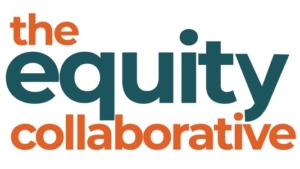To Live and Live Abundantly: Black History Month
The origins of Black History Month begin in 1915, when Carter G. Woodson and minister Jesse E. Moorland founded the Association for the Study of Negro Life and History, an organization dedicated to promoting the achievements of Black Americans. The national Negro History week was sponsored by the organization in 1926, and in 1976, President Gerald Ford officially recognized Black History Month, calling this an “opportunity to honor the too-often neglected accomplishments of Black Americans in every area of endeavor throughout our history.”
Fast forward to 2021 and we continue to honor Black Americans every February. “Lift Every Voice and Sing” echoes through virtual church services, our schools plan Black History programs, and companies change their displays to highlight Black-owned products, designs, and leaders. Every February, as a Black woman, I am excited to see how Black Americans’ accomplishments are highlighted and honored during this time. I have also thought, “What if we honored Black Americans all year long?”
What if during my public school education, Black history was incorporated as a part of the standard curriculum? What if Black authors were seamlessly intertwined in English curriculum and Black histories taught in social studies? What if Black history was not relegated to a month but a part of the norm? What if we honored Black Americans 365 days a year?
What if we honored Black Americans by crafting policies that will positively impact their lives?
What if we honored Black Americans by seeking to truly understand the history of white supremacy in our country and moving towards racial equity?
What if we honored Black Americans by having the tough and necessary conversations about how implicit bias has impacted our policies, practices, and procedures?
What if we honor Black Americans by holding each other accountable for moving toward a more equitable society?
In 2012, a movement started by a hashtag became a rallying cry to center Black lives. Black Lives Matter is a decentralized movement that seeks to center Black lives in activism and advocacy. As the hashtag gained momentum on Twitter, Instagram, and Tik Tok, I have watched young Black people dream about a future without systemic oppression—a future where they are able to receive a quality education, make good money, receive adequate healthcare, a future where they live and live abundantly.
The dreams of young Black people have driven my commitment to anti-racist practices and working to dismantle systemic racism in public school education. I am joined by hundreds of educators, community activists, public school districts, and community-based organizations who arduously work towards the same goal. At The Equity Collaborative, we are humbled to walk with many of you on your journey to anti-racism. If we continue to center Black lives daily, I know that our world will be a better place because of it. Our young people’s dreams can be realized—to live and live more abundantly.



